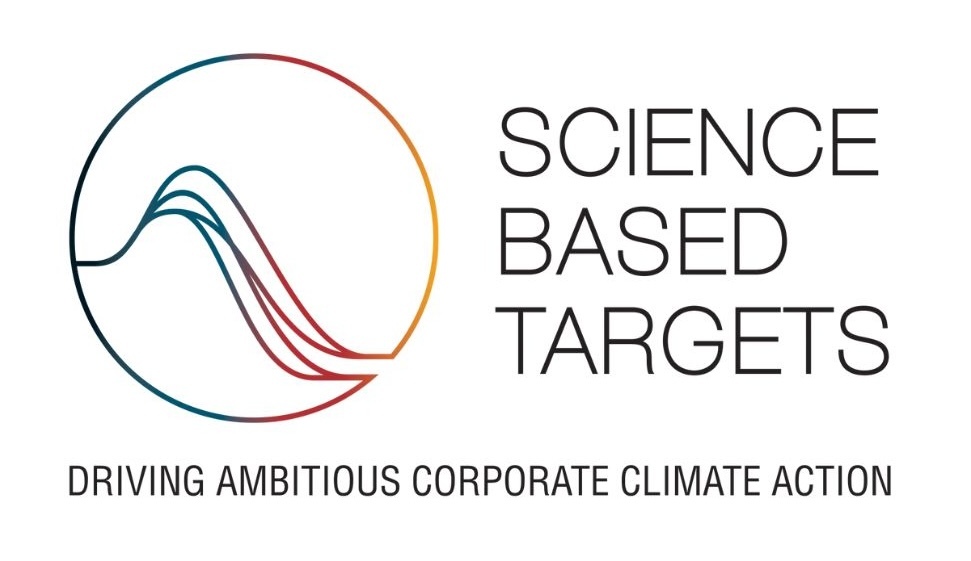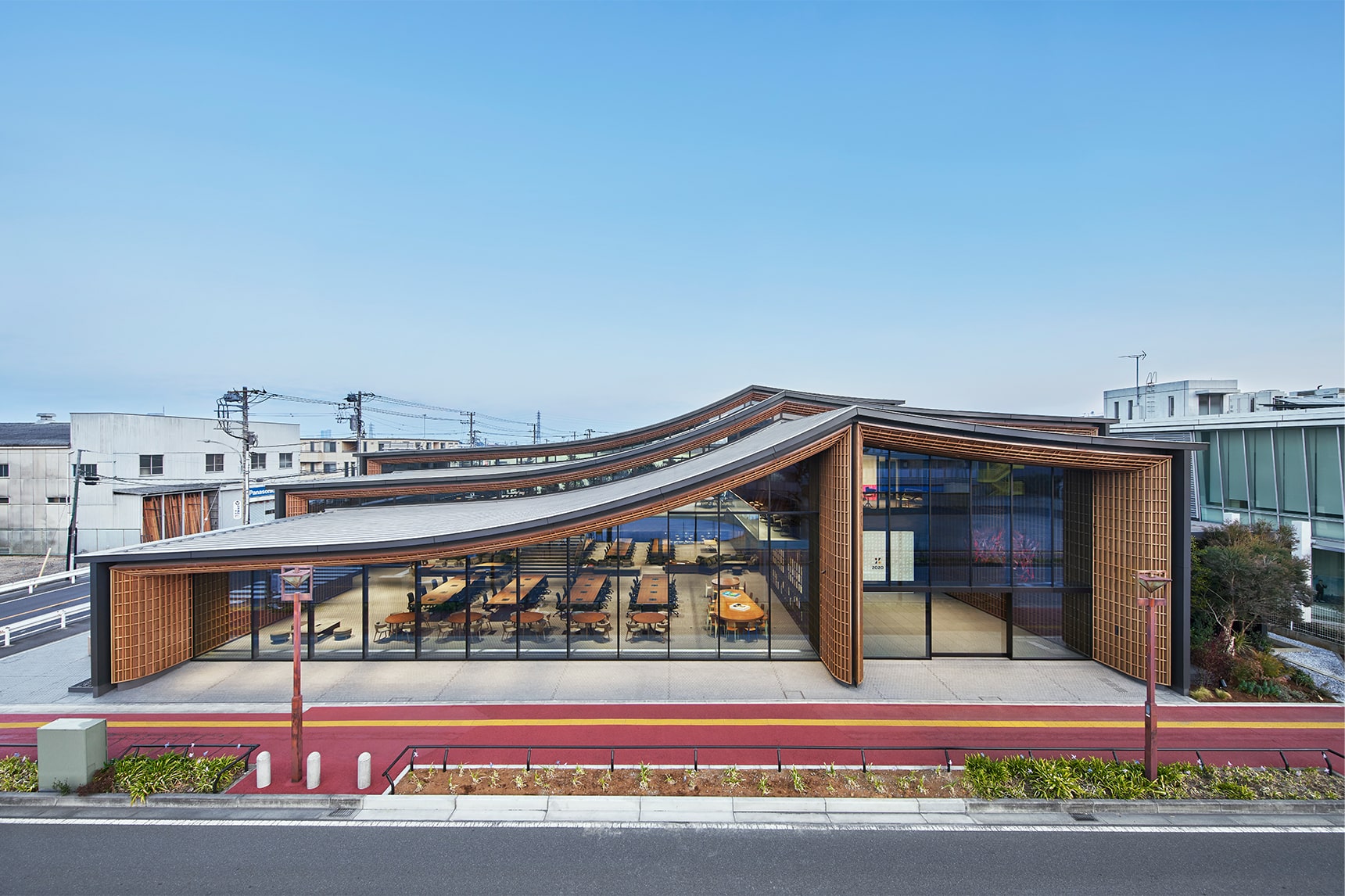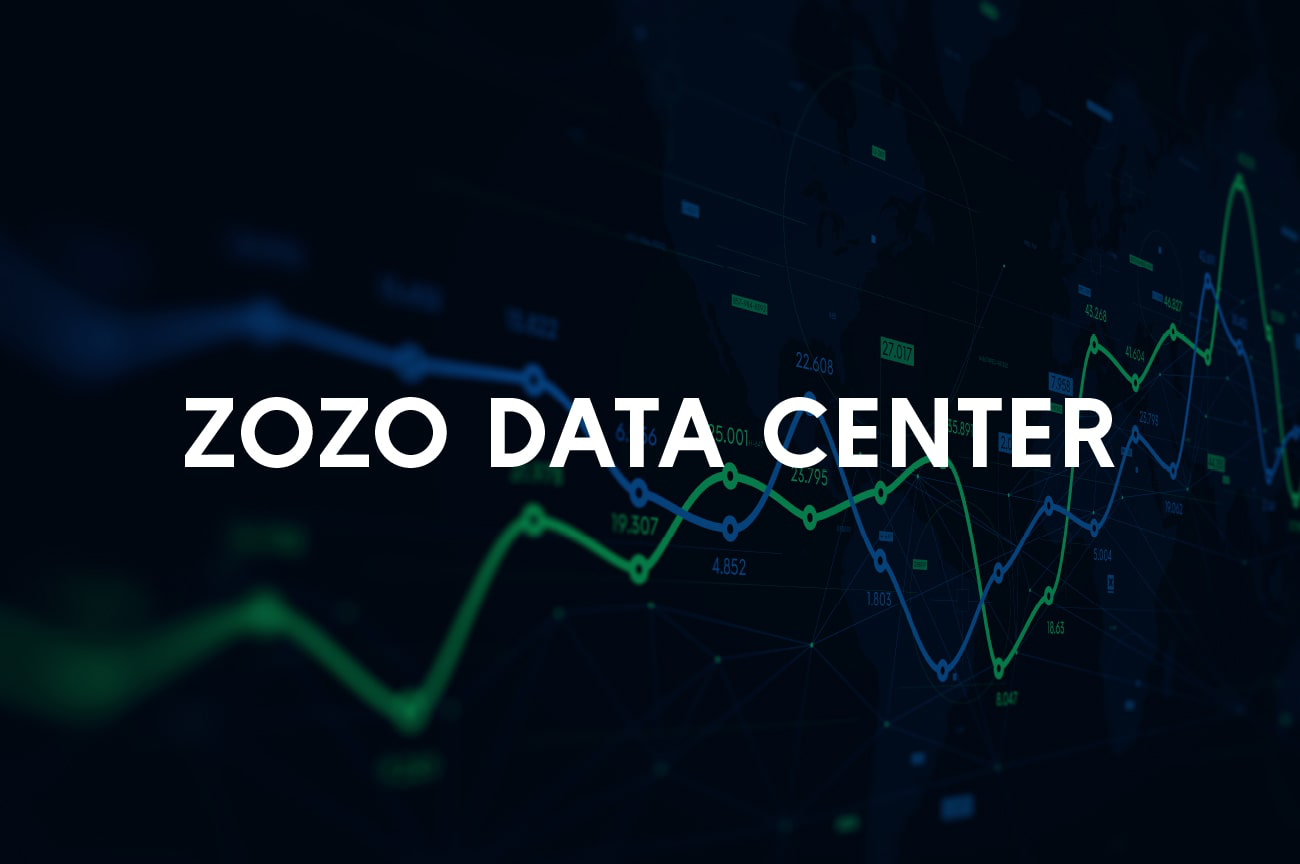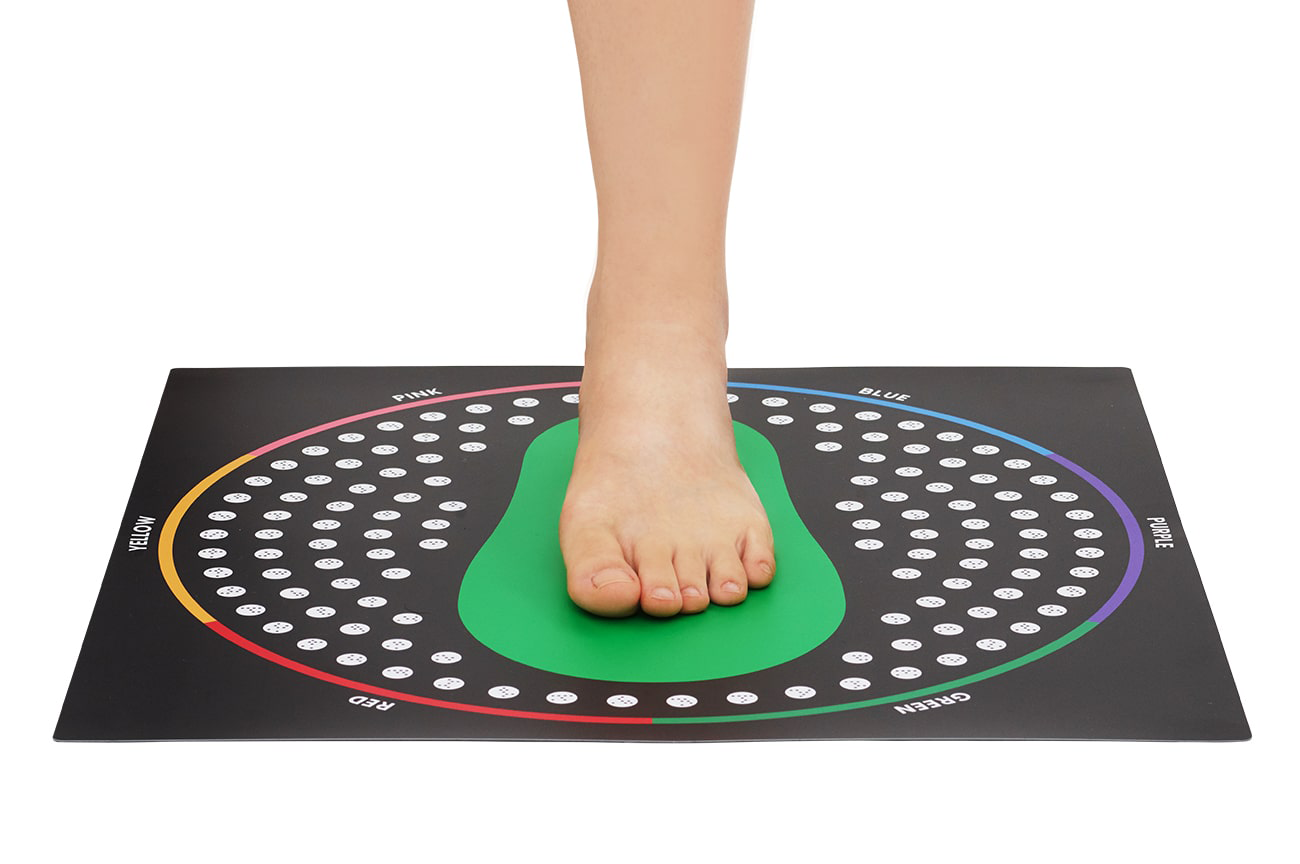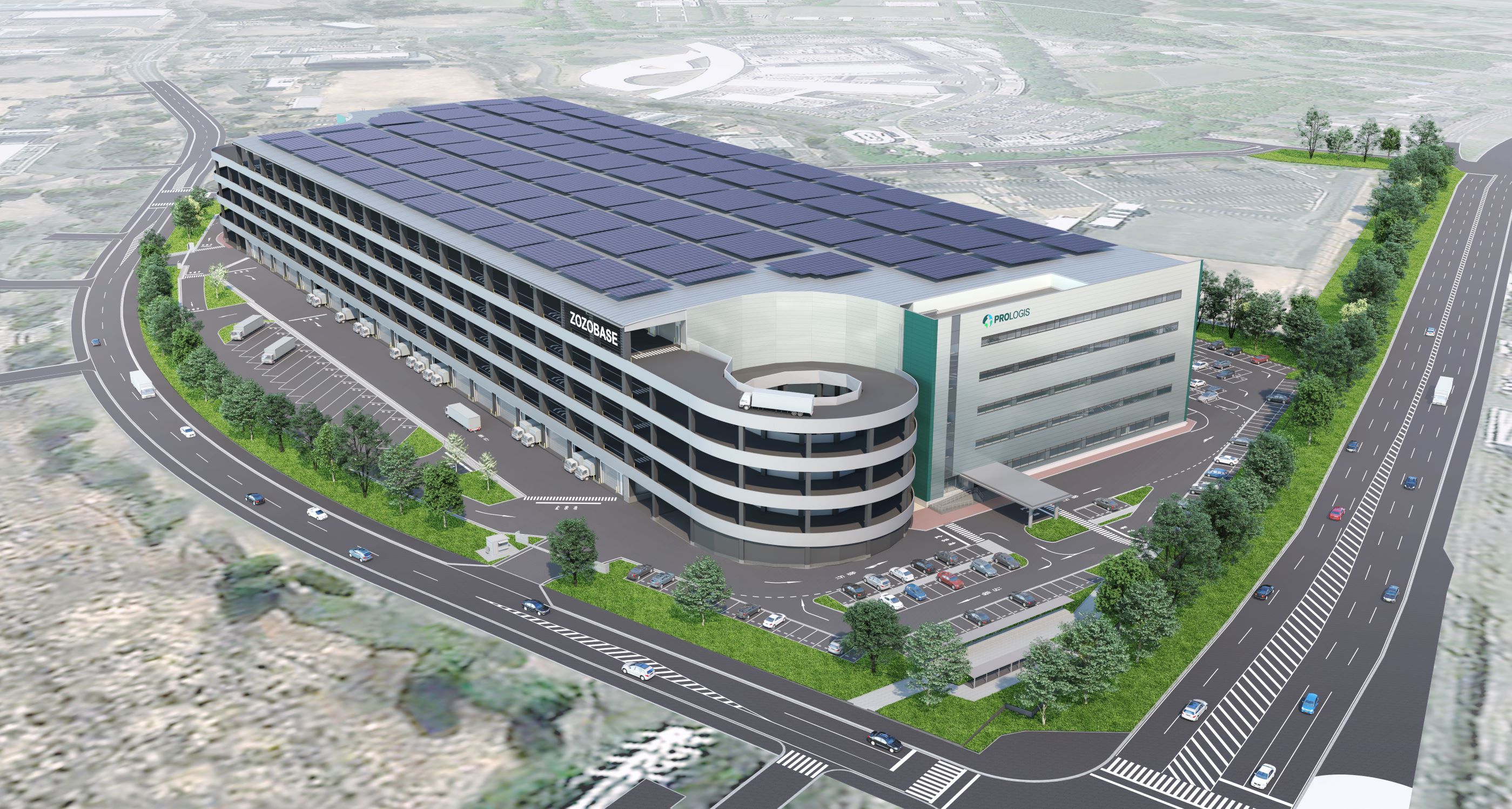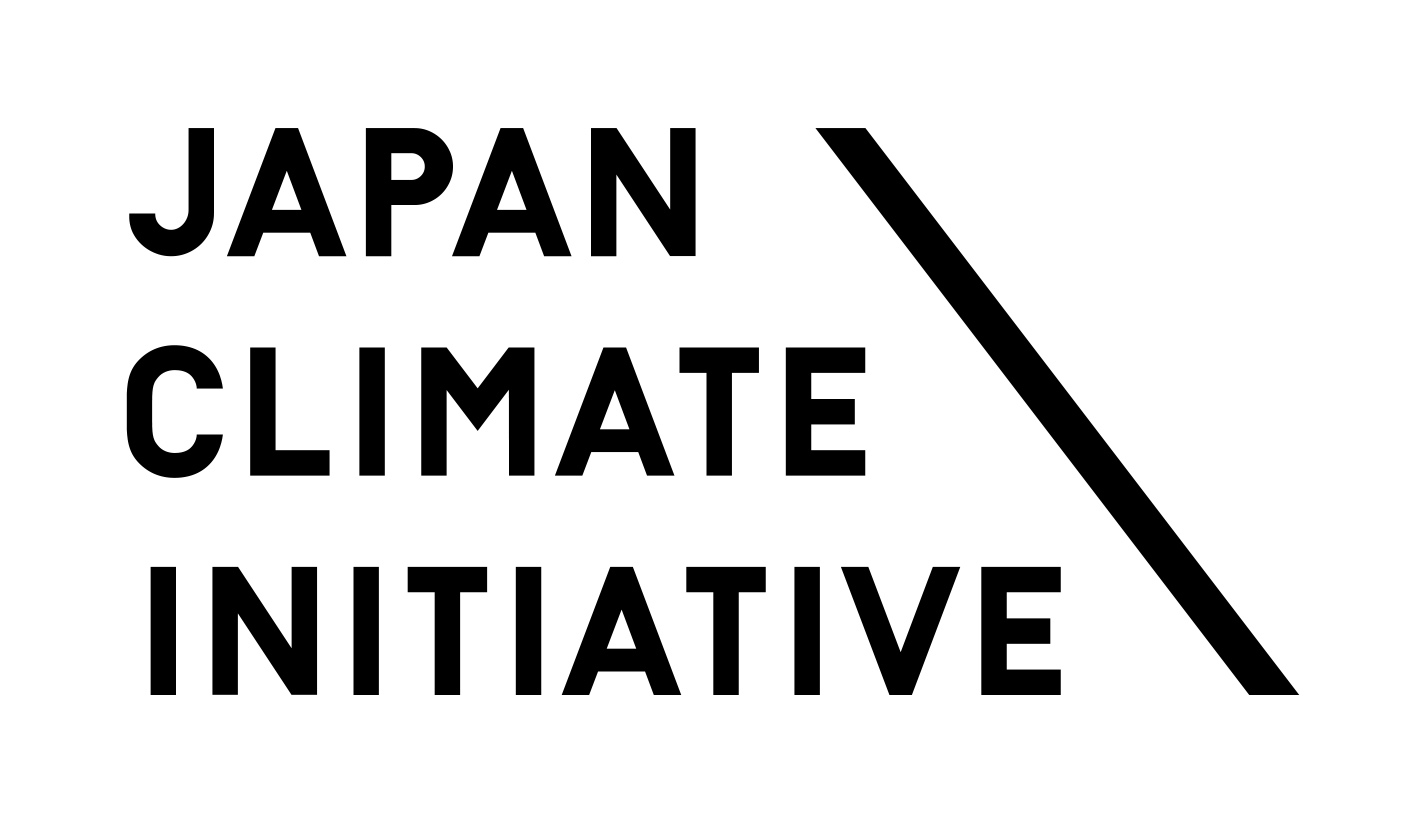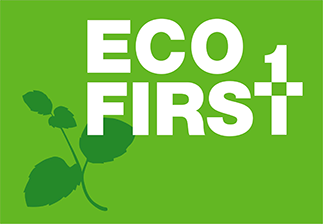Climate Change
Net Zero
In addition to the "2030 Carbon Neutral Declaration"(*1), which aims to reduce greenhouse gas emissions (Scope 1&2) from our business activities to virtually zero by FY2030, we are committed to realizing a "Net Zero" (*2), which aims to reduce supply chain emissions, including those emitted by business partners and suppliers (Scope 3), to virtually zero by 2050.
Scope 1: Direct emissions of greenhouse gas by businesses themselves (fuel combustion, industrial processes)
Scope 2: Indirect emissions associated with the use of electricity, heat, and steam supplied by other companies
Scope 3: Indirect emissions other than Scope 1 and Scope 2 (emissions of other companies associated with the activities of the business operator)
*1 Announced the "2030 Carbon Neutral Declaration" in February 2022
*2 Announced "Net Zero" in January 2023
TCFD
Endorsement of TCFD
ZOZO Group announced the agreement to "Task Force on Climate-related Financial Disclosures (TCFD)"※ in February 2022. We will continue to disclose climate-related risks and opportunities - "Governance", "Strategy", "Risk Management" and "Indices & Targets" based on TCFD’s recommendations.
- "Task Force on Climate-related Financial Disclosures (TCFD)" is a task force established by The Financial Stability Board, an international body consisting of several central banks, ministries of finance and more. TCFD declared to support companies disclosing climate-related risks and opportunities in June 2017.
Governance
We consider that the drafting and implementation of strategies is effective by dealing with climate change issues at our Board of Directors. Accordingly, the Board of Directors deliberate and resolutes on important environmental matters, including climate change. SDGs Promotion Committee, established as an executive management organization, is chaired by the president and CEO, and acts as a chief executive officer of environmental management responsible to oversee discussions regarding climate-related risk and opportunities, policies and goals, progress of initiatives, and to report to the Board of Directors important matters discussed at the SDGs Promotion Committee.
Our Corporate Governance Structure
Strategy
Scenarios for future climate change were analyzed usingFASHION INDUSTRY CHARTER FOR CLIMATE ACTION and A Roadmap to Net-zero Emissions for the Apparel Sector , which reference the “IEA NZE 2050” scenario published by the International Energy Agency (IEA), and are based on the findings of the Intergovernmental Panel on Climate Change (IPCC).
Through this analysis, we identified climate-related risks and opportunities.
Categorization of risks and opportunities based on TCFD recommendations
Transition risks
Policies and Laws
| Content | Time Horizon | Mitigation Plan | Financial Impact |
|---|---|---|---|
| Burden of taxes on the new environment, such as carbon tax | Mid-term / Long-term |
|
Small |
| Tightening of regulations on materials (packaging materials and products) | Mid-term / Long-term |
|
Medium |
| Tightening of regulations on delivery (inbound and outbound shipments) | Short-term / Mid-term |
|
Small / Medium |
| Tightening of sales regulations for greenwash | Mid-term / Long-term |
|
Medium |
Technology
| Content | Time Horizon | Mitigation Plan | Financial Impact |
|---|---|---|---|
| Cost increase due to change to environmentally-friendly operations | Short-term / Mid-term / Long-term |
|
Small |
| Cost increases due to change in environmentally-friendly production methods and materials | Short-term / Mid-term / Long-term |
|
Medium |
Market
| Content | Time Horizon | Mitigation Plan | Financial Impact |
|---|---|---|---|
| Declining demand for products that are not environmentally-friendly due to changes in environmental awareness and consumer behavior | Mid-term |
|
Medium |
| Soaring product prices due to the shift to environmentally-friendly products | Short-term / Mid-term |
|
Medium |
| Soaring prices for energy such as electricity and crude oil | Short-term / Mid-term |
|
Small |
Reputation
| Content | Time Horizon | Mitigation Plan | Financial Impact |
|---|---|---|---|
| Declining reputation risk and corporate value due to inadequate response to environmental issues | Short-term / Mid-term |
|
Medium |
| Suspension of trading by suppliers due to inadequate response to environmental issues | Mid-term / Long-term |
|
Medium |
| Declining investor evaluation due to inadequate response to environmental issues | Short-term / Mid-term |
|
Medium |
Physical risks
Acute
| Content | Time Horizon | Mitigation Plan | Financial Impact |
|---|---|---|---|
| Increasing product manufacturing and procurement costs and unit prices due to natural disasters and climate change | Mid-term / Long-term |
|
Large |
| Damage to business establishments, logistics centers, data centers, and products for sale due to natural disasters | Mid-term / Long-term |
|
Large |
| Changes in consumer demand due to Infectious diseases risk (Covid-19, etc.) | Short-term / Mid-term / Long-term |
|
Small |
| Increasing costs due to capital investment in response to extreme weather | Short-term / Mid-term / Long-term |
|
Small |
Chronic
| Content | Time Horizon | Mitigation Plan | Financial Impact |
|---|---|---|---|
| Declining demand for heavy winter clothing due to global warming | Mid-term / Long-term |
|
Small |
| Exhaustion of raw materials due to rising temperatures and sea levels | Mid-term / Long-term |
|
Small |
Opportunities
Resource efficiency
| Content | Time Horizon | Mitigation Plan | Financial Impact |
|---|---|---|---|
| Efficiency of resources, such as paperless operations | Short-term |
|
Small |
| Improvement, optimization, and reuse of packaging materials | Short-term |
|
Small |
| Efficiency of transportation and delivery | Short-term / Mid-term |
|
Medium |
Energy source
| Content | Time Horizon | Mitigation Plan | Financial Impact |
|---|---|---|---|
| Reducing energy consumption by building environmentally-friendly operations (e.g., energy-saving) | Mid-term / Long-term |
|
Medium |
Products/Services
| Content | Time Horizon | Mitigation Plan | Financial Impact |
|---|---|---|---|
| Acquiring competitive advantage by developing and providing environmentally-friendly services (reuse, custom-order production, etc.) | Mid-term / Long-term |
|
Large |
| Acquire competitive advantage by building environmentally-friendly logistics operations | Mid-term / Long-term |
|
Large |
Market
| Content | Time Horizon | Mitigation Plan | Financial Impact |
|---|---|---|---|
| Acquiring new customers and expand the use of existing customers by offering products and services that meet environmental demand | Mid-term / Long-term |
|
Large |
| Creating new markets by collaborating with stakeholders and developing technologies | Short-term / Mid-term / Long-term |
|
Medium |
| Expansion of growth opportunities associated with changes in consumer behavior due to an increasing the risk of infectious diseases | Short-term / Mid-term / Long-term |
|
Small |
*Short-term: 2024-2027, Medium-term: 2027-2030, Long-term: 2030-2050
Risk Management
With regard to climate-related risks, the Sustainability Promotion Section in Communication Design Division, which is in charge of sustainability exclusively, identifies climate-related risks and opportunities that affect business, and then discusses them at SDGs Promotion Committee, which is chaired by the Representative Director, President & CEO, and reports to the Board of Directors. In addition, the Risk Management Committee identifies important risks across the entire ZOZO group and implements risk management.
Metrics and Targets
In addition to the "2030 Carbon Neutral Declaration"(*1), which aims to reduce greenhouse gas emissions (Scope 1&2) from our business activities to virtually zero by FY2030, we are working to realize a "Net Zero" (*2), which aims to reduce supply chain emissions, including those emitted by business partners (Scope 3), to virtually zero by 2050.
*Scope 1: Direct emissions of greenhouse gas by businesses themselves (fuel combustion, industrial processes)
*Scope 2: Indirect emissions associated with the use of electricity, heat, and steam supplied by other companies
*Scope 3: Indirect emissions other than Scope 1 and Scope 2 (emissions of other companies associated with the activities of the business operator)
*1 Announced the "2030 Carbon Neutral Declaration" in February 2022
*2 Announced "Net Zero" in January 2023
Emissions of Greenhouse Gas (CO2) Reduction Targets and Performance
Scope 1
|
| Base year emissions | Actual emissions | Target annual emissions | |||
|---|---|---|---|---|---|---|
| Fiscal 2020 | Fiscal 2023 | Fiscal 2024 | Fiscal 2025 | Fiscal 2030 | Fiscal 2050 | |
| Emissions (t-CO2) | 5 | 34 | 34 | 1 | 0 | 0 |
| Reduction rate (compared to fiscal FY2020) | ー | △580% | △580% | 80% | 100% | 100% |
Scope 2(Market-based)
|
| Base year emissions | Actual emissions | Target annual emissions | |||
|---|---|---|---|---|---|---|
| Fiscal 2020 | Fiscal 2023 | Fiscal 2024 | Fiscal 2025 | Fiscal 2030 | Fiscal 2050 | |
| Emissions (t-CO2) | 8,032 | 237 | 716 | 1,607 | 0 | 0 |
| Reduction rate (compared to fiscal FY2020) | ー | 97% | 91% | 80% | 100% | 100% |
Scope 2(Location-based)
|
| Base year emissions | Actual emissions | Target annual emissions | |||
|---|---|---|---|---|---|---|
| Fiscal 2020 | Fiscal 2023 | Fiscal 2024 | Fiscal 2025 | Fiscal 2030 | Fiscal 2050 | |
| Emissions (t-CO2) | 8,209 | 12,252 | 13,576 | 1,642 | 0 | 0 |
| Reduction rate (compared to fiscal FY2020) | ー | △50% | △65% | 80% | 100% | 100% |
Scope 3
|
| Base year emissions | Actual emissions | Target annual emissions | |||
|---|---|---|---|---|---|---|
| Fiscal 2020 | Fiscal 2023 | Fiscal 2024 | Fiscal 2025 | Fiscal 2030 | Fiscal 2050 | |
| Emissions (t-CO2) | 411,919 | 224,593 | 204,580 | ー | 238,913 | 0 |
| Reduction rate (compared to fiscal FY2020) | ー | 46% | 50% | ー | 42% | 100% |
SBTi
In August 2025, our greenhouse gas reduction targets, both near-term and long-term, were approved by the Science Based Targets initiative (SBTi). SBTi officially validated that the targets conform to its Corporate Net-Zero Standard and Guidance.
The Science Based Targets initiative (SBTi) was jointly operated by United Nations Global Compact , CDP, World Resources Institute (WRI), We Mean Business Coalition and World Wide Fund for Nature (WWF). It assesses and approves whether the greenhouse gas (GHG) reduction targets of companies and organizations are scientifically aligned with the Paris Agreement’s 1.5°C goal.
*SBT: Greenhouse gas emission reduction targets set by companies to be 5 to 15 years ahead, consistent with the level required by the Paris Agreement
*SBTi: Initiatives jointly managed by four organizations: the World Wide Fund for Nature (WWF), CDP, World Resources Institute (WRI), and the United Nations Global Compact
The targets certified by the SBTi for ZOZO are as follows:
ZOZO’s Greenhouse Gas Emissions Reduction Targets
Near-term Target (2030 Carbon Neutral Declaration)
・Reducing absolute scope 1 and 2 GHG emissions 90% by FY2030 from a FY2020 base.
・Reducing absolute scope 3 GHG emissions 42% by FY2030 from a FY2020 base.
Long-term Target (Net Zero)
・Reducing absolute scope 1, 2 and 3 GHG emissions 90% by FY2050 from a FY2020 base year, with up to 10% of emissions offset.
・Maintain at least a 90% reduction in absolute scope 1 and 2 GHG emissions between FY2030 and FY2050 from a FY2020 base year, with up to 10% of emissions offset.
*Base year: 2020
Climate Change Initiatives
We are implementing measures to address climate change through the introduction of renewable energy at our head office and several logistics centers and through services utilizing technologies such as ZOZOMAT, a mat for foot 3D measurement.
Introduction of Renewable Energy to Our Sites
We are committed to achieving 100% renewable energy use for our facilities by 2030, as part of our “2030 Carbon Neutral Declaration”. As of March 2025, more than 90% of the electricity consumed at our facilities is sourced from renewable energy. All renewable electricity procured comes from non-fossil certificates. We have adopted ENECT RE100 Plan from minnadenryoku Co., Ltd., which provides 100% renewable energy for electricity consumption.
Since January 2022, we have introduced 100% renewable energy derived from biomass and solar power -Tracking-enabled Non-Fossil Certificate for FIT- at our logistics centers “ZOZOBASE Narashino 1” and “ZOZOBASE Tsukuba 1”. This was followed by “ZOZOBASE Tsukuba 2” in June 2022, “ZOZOBASE Narashino 2” in September 2023, and “ZOZOBASE Tsukuba 3” in March 2023. As of April 2024, the same renewable energy has also been adopted at all our office sites. Our use of renewable energy in FY2024 resulted in a CO₂ reduction of 13,559 tons.
Introduction of 100% Renewable Power to ZOZO Head Office in Nishi-Chiba
100% Renewable Energy Introduced at ZOZO’s Logistics Hub “ZOZOBASE”
Using Renewable Energy in All Data Centers
Our data centers that store our servers, etc. use 100% renewable energy power. We are also promoting energy-saving initiatives using cloud data centers.
Sustainable Content "elove by ZOZO"
In September 2022, we launched "elove by ZOZO," a permanent content that presents sustainable information on the Fashion EC "ZOZOTOWN" used by more than 13 million people per year. Aiming to "Highlight sustainable fashion choices to improve usersʼ experience," we present their efforts to sustainability of fashion brands and sustainable products. We also present TIPS related to fashion, environmental and social issues, and other information that is useful when sustainable shopping.
Permanent Content "elove by ZOZO"
Measurement Technology
In order to resolve concerns about the size of EC purchases, we provide measurement tools such as ZOZOSUIT, 3D measurement bodysuit, ZOZOMAT, 3D foot measuring tool, and ZOZOGLASS, a skin tone capturing device. As a result, we have been able to reduce the amount of CO2 generated by returning and delivering products, thereby reducing the environmental impact. We also confirmed that ZOZOMAT users have a 36.9 percentage (※) lower return rate than non-users. In addition, we have begun offering ZOZOFIT, a body management service that supports workout progress in the United States using ZOZOSUIT, which enables the generation of 3D models for the body. Measuring technologies not only in fashion but also in healthcare and other fields.
*Compare return rates of ZOZOMAT compatible shoes and non-compatible shoes (Period: February 27, 2020 to October 12, 2020)Reduce Environmental Impact by Lowering the Return Rate of Shoes Compatible with ZOZOMAT
Logistics
Logistics Centers
Installed LED Lightings at All the Logistic Centers
In logistics centers ZOZOBASE, 100% of the electricity used at all bases is renewable energy, and LED lighting is used for all lighting equipment to conserve energy and reduce CO2 emissions.
Installed LED Lightings at All the Logistic Centers, "ZOZOBASE"
Introduced "EMS-AI" air conditioning optimum control system
In logistics centers ZOZOBASE, we are working to save energy and reduce CO2 emissions by introducing EMS-AI, which automatically optimizes temperature control in the warehouse.
Introduction of the Air Conditioning Optimization Control System "EMS-AI" at Logistics Center "ZOZOBASE NARASHINO 1"
Minimize transportation between logistics centers
In logistics centers ZOZOBASE, ZOZO RESEARCH, our R&D organization, are conducting inventory allocation research to minimize inter-site transportation with the aim of achieving sustainable logistics, and reduce CO2 emissions with inter-site transportation.
ZOZO Research Institute receives the Operations Research Society's 42nd "Case Study Award" for its research on inventory placement that minimizes transportation between locations.
Introducing pallets made of 100% recycled materials
In the logistics centers ZOZOBASE we use pallets made of 100% recycled materials when transporting cargo. In addition, as an initiative to reduce the use of plastic hangers associated with the storage of outerwear and other products, we recommend flat storage to the extent that quality is not compromised, and request brands to deliver products that do not use plastic hangers as much as possible, and we are working to reduce the amount of waste.
Introduced Pallets with 100% Recycled Materials
Transportation and delivery
Improvement of loading efficiency in trunk line transportation
When transporting products from logistics centers ZOZOBASE to distant locations (such as the Hokkaido・Kyushu region), we reduce the amount of CO2 used in transporting products by improving the load-carrying efficiency of trunk transportation by packing them in different regions after trunk transportation, instead of packing them at our each transportation sites.
Utilize YAMATO TRANSPORT's Relation Center to Streamline ZOZOTOWN Product Delivery in the Hokkaido・Kyushu Region
Introduced EAZY, Supported by YAMATO TRANSPORT into our services
We have introduced EAZY, a service offered by YAMATO TRANSPORT Co., Ltd. that allows customers to choose the way they receive it, such as in front of the entrance, for the first time in Japan, and we recommend it on the order completion screen of our service. As a result, the rate of customer absenteeism at the time of delivery has decreased, and we are working to reduce CO2 emissions with redelivery.
Introduced EAZY, Supported by YAMATO TRANSPORT into our services, and launched a new delivery method to reduce the risk of personal information leaks through our package drop service.
Introduction of "Order Consolidation" function
We have introduced an "Order Combination" feature that combines multiple orders into a single order for delivery. When multiple orders have not yet been shipped, orders that can be combined will be automatically combined and shipped to the specified destination. This reduces the amount of packaging materials used for product delivery and the number of deliveries, thereby reducing CO2 emissions associated with delivery.
Efficiency Improvement in Product Delivery through the Expansion of Order Consolidation
Introduction of "Slow Delivery"
"Slow Delivery" is a new delivery option that delivers orders between 7 and 10 days after customers place their orders, and the lead time from order to delivery is up to 6 days longer than normal delivery. As an address the "2024 Problem" in logistics caused by the implementation of the Work Style Reform Laws, we conducted a trial introduction of it in April 2024, and as we confirmed the effect of reducing the number of deliveries by promoting "Order Consolidation", we introduced it on a full scale in August 2024, expecting further effects such as a reduction in CO2 emissions.
Packing materials
Use of environmentally friendly materials
In the logistics centers ZOZOBASE, we use FSC certified cardboards and bags made from biomass materials for packaging materials used in the delivery of products to customers. We also use recycled paper to protect our products, and we strive to be environmentally friendly.
Packaging Materials
Initiatives with Industry Associations
We actively promote initiatives alongside industry associations to address environmental and social issues, engaging with our supply chain and all stakeholders in the process. Furthermore, we consistently reassess the alignment between our management strategy, business activities, and the philosophies of these industry associations. Should a significant misalignment be identified, we explore opportunities for improvement, consider withdrawing, and seek membership in associations more in line with our policies.
JSFA
On April 1, 2022, we became a member of the JAPAN SUSTAINABLE FASHION ALLIANCE (JSFA), which aims to promote the transition to a sustainable fashion industry. JSFA is an alliance established in August 2021 to collectively address challenges that are difficult for individual companies to solve independently. As of April 2024, a total of 65 fashion and textile companies were members, with the Ministry of Economy, Trade and Industry, the Ministry of the Environment, and the Consumer Affairs Agency as public partners.
Commitment
・In endorsement of the Paris Agreement,we promote the transition to a carbon-free business. (Endeavor to overcome contrary businesses)
・We endeavor to participate in the Net Zero Declaration and RE100, EP100, EV100 by 2050.
・We work to reach suppliers and customers and make the value chain more transparent.
・We promote the proper volume production, appropriate volume purchase, and recycling.
・As a member of the alliance, we endorse and cooperate with policy involvement and collaboration in sustainable fashion.
2050 year target
・"2050 Carbon Neutral"
・"Zero Fashion Loss through Proper Volume Production, Appropriate Volume Purchase, and Recycling"
Approach to Human Rights
The Japan Sustainable Fashion Alliance (JSFA) and its member companies endorse the UN Guiding Principles on Business and Human Rights, actively advancing initiatives that respect human rights in accordance with these principles.
Initiatives at JSFA
At JSFA, our company, as a member, has assisted in creating the “JSFA Scope 3 Greenhouse Gas Emissions Case Studies.” Supported by the Ministry of the Environment and in partnership with the Japan Apparel-Fashion Industry Council (JAFIC), we have also helped develop the “Sector-specific Guide to Calculating Greenhouse Gas Emissions through Supply Chains for the Fashion Industry.” Going forward, we will continue to engage actively in discussions to address shared industry challenges and to promote initiatives towards zero fashion waste, supporting the fashion industry's goal of achieving carbon neutrality by 2050.
JAPAN SUSTAINABLE FASHION ALLIANCE (JSFA)
Japan Climate Initiative(JCI)
Since March 2024, we have been a participant in the Japan Climate Initiative, endorsing its declaration to "Join the forefront of the global movement towards decarbonization from Japan." The initiative serves as a network to enhance the sharing of information and dialogue among businesses, municipalities, NGOs, and other entities actively engaged in combating climate change.
Japan Climate Initiative
Eco First Promotion Council
Our company was recognized by the Minister of the Environment as an “Eco-First Company” under the Eco-First Program.
We have been a member of the Eco-First Promotion Council since April 2024.
The Eco-First Promotion Council is an initiative that encourages member companies to put their “Eco-First Commitment” into practice through approaches unique to each company.
By sharing opinions, best practices, and challenges, the Eco-First Promotion Council encourages its members to improve the quality of their environmental protection efforts and to strengthen their ability to communicate these efforts.
As a member of the Council, we are committed to improving our approaches to addressing environmental challenges through knowledge sharing and collaboration with other members.
ZOZO ”Eco-First Dommitment”(Overview)
1.Achieving net-zero emissions by 2050 through reducing negative environmental impact from our operations.
2.Managing use of natural resources and contributing to the circular economy by promoting reuse.
3.Communicating our efforts to protect the environment to stakeholders and promoting them.
A Fashion Industry First: Recognized as an "Eco-First Company" by the Ministry of the Environment

